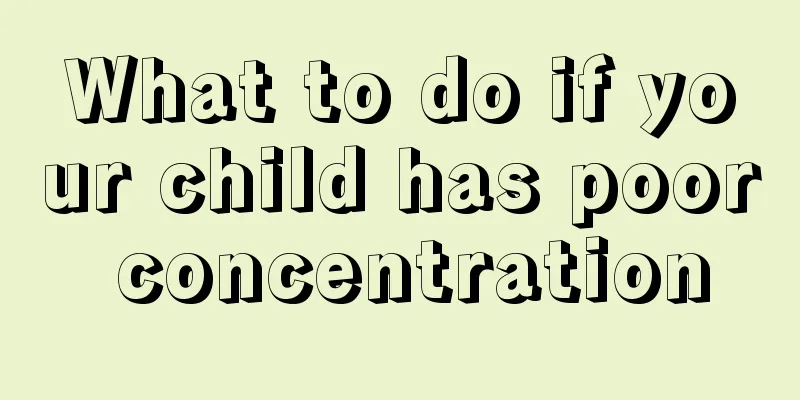Why does a 4-year-old child urinate frequently?

|
Since the baby was born, the mother has been the busiest person. Not only does she have to prepare breast milk anytime and anywhere, but she also has to prepare a lot of diapers for the baby. If there are older people in the family, they will not let the baby use diapers, but cloth diapers, and the mother has to wash them after use. When the child is a little older, a lot of pressure can be relieved. Not only will he be weaned, but he will also no longer need diapers. So, what is the reason for a 4-year-old child to urinate frequently? Children's daytime frequent urination syndrome is also known as children's specific daytime frequent urination, children's psychogenic daytime frequent urination, and simple daytime frequent urination. The names of the diseases seem complicated, but one thing they have in common is that they all have "daytime". As the name suggests, the symptoms only appear during the day and disappear after falling asleep at night. It is more common in children aged 3 to 8 years old, and is more common in spring and early winter. The course of the disease usually ranges from several days to several months, and it will heal suddenly after an average of 3 months. Similar to a sudden onset of the disease, "coming and going quickly" is the most notable feature of this symptom. Parents can rest assured that children's daytime frequent urination syndrome has no organic pathology and is mostly caused by mental factors. The primary inducing factor may be closely related to the parents. Some parents are worried about their babies wetting their pants, and require their babies to urinate every 10-20 minutes since childhood. In addition, it may also be related to mental factors such as the child not daring to ask for leave to go to the toilet when attending kindergarten or school, high study pressure, fear of being blamed by parents or teachers after wetting their pants, sudden leaving their parents, and introverted personality. Therefore, the treatment of children's daytime frequent urination syndrome also requires the cooperation of parents, and urination training to correct behavior is the first choice. The person who tied the bell must untie it. Parents must realize the impact of their words and deeds on their children. Do not force the baby to urinate regularly before the age of 3. When the child has symptoms of frequent urination, do not blame him too much for wetting his pants or bedding. When the child urinates once and then asks to urinate frequently, you can divert or distract his attention to relieve the symptoms. Tell the child that he will have no urine for a while after urinating and does not need to go to the toilet often. Guide the child to gradually extend the time to go to the toilet and reduce the number of urination as appropriate. The symptoms will gradually improve and heal themselves. |
<<: What should I do if my child has eczema around his mouth?
>>: What is the reason for children's large gaps between teeth?
Recommend
There are red spots on the soles of my child's feet and they itch
As the saying goes, a journey of a thousand miles...
What should a newborn baby wear?
Many parents of newborn babies do not know how to...
Baby's self-awareness sensitive period
Babies will have a sensitive period of self-aware...
What causes a tickle in my child's throat?
Throat itching and coughing is a very common dise...
Reasons why breastfed babies have less bowel movements
In fact, it is very difficult to take care of you...
Breastfeeding and smelly farts, mothers are worried about these problems
Babies who are exclusively breastfed for a long p...
What are the symptoms of nasal polyps in children?
Nasal polyps are actually not very common in chil...
Solutions for newborn baby frowning
We may have seen many children frowning. This sit...
5-year-old baby height and weight
We all know that babies grow and develop very fas...
What should I do if my child suddenly has a fever at night?
Winter is the time when children have fever most ...
What are the causes of baby's labia adhesion?
Generally, various problems are prone to occur wh...
What are the symptoms and treatment of infantile dysentery?
Infant dysentery is a common disease in infancy. ...
What to do if your six-month-old baby is restless while sleeping
Every baby lives in a different environment, so s...
What are the reasons for baby spitting up?
It is very common for infants and young children ...
How do you know if your child has ADHD? Criteria for determining ADHD
ADHD is very complicated in current medicine. ADH...









